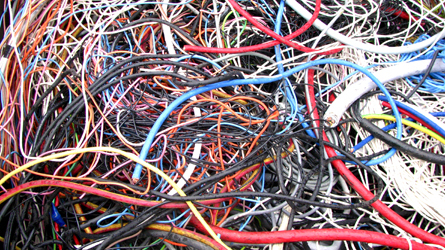Bio
Prior to commencing her PhD, Kaye’s career involved roles in community engagement and education, policy analysis, implementation of natural resource management strategies, land-use planning and quasi research activities across local, state and Commonwealth governments over a 17 year period. Kaye’s bachelor studies at the Australian National University included majors in environmental science and sociology, with a sub major in economic history. Kaye’s honours research evaluated land and water salinity management plans in the Shepparton Irrigation area in Northern Victoria. Since her honours Kaye has continued to broaden her multidisciplinary expertise and knowledge through Master-level studies in education and training and environmental science.
Background
Today, portable electronic devices permeate and shape virtually all aspects of people’s everyday life (Fortunati 2006; Ongondo and Williams 2011 and Tacchi et al 2012). Governments and industry organisations now support recycling through voluntary and co-regulatory product stewardship schemes. Central to these approaches is a focus on changing people’s behaviours such that greater quantities of portable electronic devices are diverted from domestic waste streams, once they reach their end of life point. However, these solutions have achieved varying degrees of success.
Purpose of research
Kaye’s PhD thesis provides the household scale analysis into the Wealth from Waste program. Her research seeks to understand household practices associated with the consumption, use and disposal of portable electronic devices by Australian households by drawing on social practice theory for framing the investigation.
Research question
The overarching question to be addressed through this research is:
What aspects of the consumption, use and disposal of portable electronic devices within Australian households are changing over time and why are these changes occurring?
In seeking to answer this question a set of sub questions will be explored:
- What social practices are associated with the consumption, use and disposal of portable electronic devices within households?
- How do the practices become attached and detached to people and objects?
- Who or what carries the practices?
- How do the systems and structures of practice form, transform and disintegrate over time?
In addressing these questions, issues of power relations and gender dynamics within households may also surface and warrant investigation.



